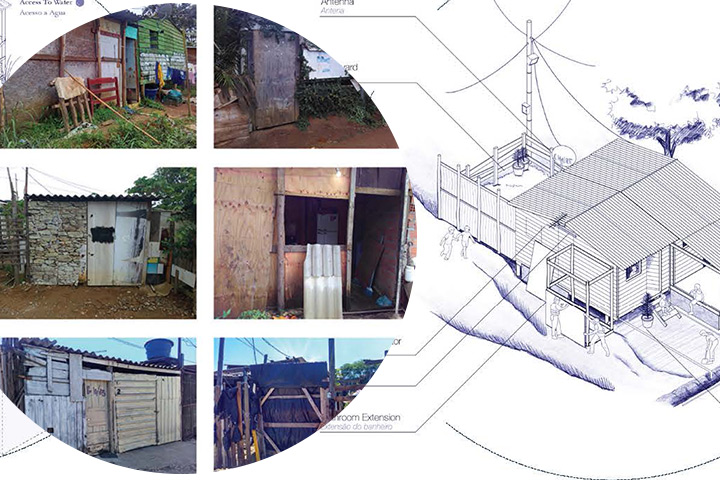Invisible climate warriors: intersectional approaches to community organizing in slum upgrading in São Paulo’s periphery.
Invisible climate warriors: intersectional approaches to community organizing in slum upgrading in São Paulo’s periphery.
Invisible climate warriors: intersectional approaches to community organizing in slum upgrading in São Paulo’s periphery.
Program: Catalyst Grants
Program details » | All Catalyst Grants projects »

(This project is currently underway)
Project Team
María Arquero de Alarcón—U-M Taubman College of Architecture and Urban Planning (PI)
Ana Paula Pimentel Walker—U-M Taubman College of Architecture and Urban Planning (Co-I)
Mieko Yoshihama—U-M School of Social Work
Odessa Gonzalez Benson—U-M School of Social Work
Project Summary
Women, non-binary, Black, Brown, and Indigenous residents living in informal and precarious communities in the southern periphery of São Paulo, Brazil, are extremely vulnerable to climate impacts. Facing scant government investment, poverty, inequality, land tenure uncertainty, and marginalization, the neighborhood residents have taken on the work of upgrading their settlements.
This project will bring the lived experiences of these community stewards to the forefront, complementing a growing body of scholarship on slum ecology and the environmental dimensions of slum upgrading in Brazil while pinpointing transformational strategies to improve settlements through climate adaptation and mitigation. The researchers will use visual methodological tools, such as Photo-Voice and Photo-Elicitation, along with collaborative workshops, to elevate intersectional identities. The project aims to advance women-led slum upgrading that is climate-resilient and responsive to issues of intersectionality and justice, shining a light on the struggles and accomplishments these invisible climate warriors face as they fight to transform their settlements into lasting, resilient communities.
The project is part of ongoing, multi-stage participatory-action research. Academics, community leaders, and activists set the agenda, co-producing methodologies and sharing knowledge about sustainable, low-carbon upgrading and healthy adaptation to climate change. The interdisciplinary research team will document and disseminate the dialogue among participants. Surfacing these exchanges could have a transformational effect, advancing knowledge of participatory governance just as the São Paulo municipality is working on the revision of its city master plan.